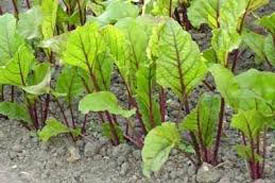Honeybees I.
 Honeybee swarming time is natural, and expected in the warm months, not now in the cold and wet of early spring. To discover a swarm on a tree branch at this time of the year indicates gross neglect on the part of the beekeeper. Jon Ratner, a long time friend and publisher of www.floydcountyinview.com discovered a swarm this past week, near his home in a cherry tree. About three pounds in size the swarm has no positive outlook for survival and will predictably die.
Honeybee swarming time is natural, and expected in the warm months, not now in the cold and wet of early spring. To discover a swarm on a tree branch at this time of the year indicates gross neglect on the part of the beekeeper. Jon Ratner, a long time friend and publisher of www.floydcountyinview.com discovered a swarm this past week, near his home in a cherry tree. About three pounds in size the swarm has no positive outlook for survival and will predictably die.
The likely scenario was that these honeybees were started, with good intentions, in a new hive, and were not properly maintained, i.e.: they were starving, and were not fed by the beekeeper. I have seen many hives die out in the springtime because the beekeepers, no matter how well intended, did not feed their bees. Inexpensive feeders are available to insert in the top super (honey collection box). The best honey feed is from your cappings, and providing heritage corn-soybean powdered substitute pollen you can make yourself
Swarming will become more common place as the global climate change impacts on the warming cycle for spring, less diversified habitat of herbs and trees coupled with the inexperience of the novice beekeeper taking all the natural honey away from the bees (who depend upon such stores for survival), and at best, replacing said honey with dubious sweet commercial syrup replacement from China laden with toxic chemicals.
I have had over forty years experience with honeybees; currently witnessing their global decline, which is impacting on their ability to pollinate human dependent food crops with subsequent less foods available for us. Honeybees are Mother Nature’s joy and God’s gift to mankind. Mankind has wrongly hybridized African bees to domestic bees, introduced viruses and mites, provided Genetic Modified crops that kill insects leaving honeybees in a sad state when they visit these plants in search of nectar and pollen.
With great fortune we in the NRV area still have honeybee habitat and local interest to keep bees; if we can educate people to support honeybee culture we may revitalize our fruit and market garden local ventures, as well as home gardens, and sales of local produced healthy honey.
Let us return to feeding our winter dependent bees (inside the hive-not outside the hive). Yes, they are dependent. Honeybees like many other creatures have become domesticated over the centuries, and the little honeybee requires a beekeeper to survive. Although often referred to as an “Old Man’s Hobby”, there is some truth in that phrase. To raise bees requires a full time dedication to keeping the honeybees. The Walt Disney ™ picturesque honeybee and cartoon independence is not factual. Honeybees require your care, management, and in the cold season enough honey store to survive for another productive year.
Weather or not you raise honeybees; you are involved in the great scheme of life with your patch of land. www.territorialseed.com , item #FL2431, Honeybee Flower Mix, will beatify your home gardens create an eye catching panorama of envious beauty for neighbors (who may also start a habitat for bees with your inspirational leadership).
My five-acre hayfield is diversified with herbs and clovers, yet I often think in my late age how striking it would be, and of significant benefit, to seed the entire hayfield in flowers. www.wildseedfarms.com will provide you with all the correct seeds for the lawn and fields, reducing, and eliminating endless lawn and field cuttings that use precious gasoline. Mowers are fraught with exhaust fumes, cause bone jarring, hearing depletion, and wasting valuable time you could be spending with your family, friends, and the pursuits of nature’s blessings.
With the economy in a down turn, jobs are not as plentiful; many Back2theLand thinkers may consider raising honeybees as a profitable income producer thereby contributing to the community welfare. This is good thinking-but always remember you must be there for the bees. An excellent book on raising bees for future beekeepers is: “Keeping Bees” by John Vivian. Williamson Publishing.
Later in this series, with enough reader interest, I will take you through the more advanced beekeeping process including the introduction of an “Austrian Bee House”, which is more fitting for this ice prone climate with the small land holder.
An overview of the current honeybee problems may be found at http://www.ars.usda.gov/News/docs.htm?docid=15572
Copyright: 2008, Back2theLand, Mark Steel



